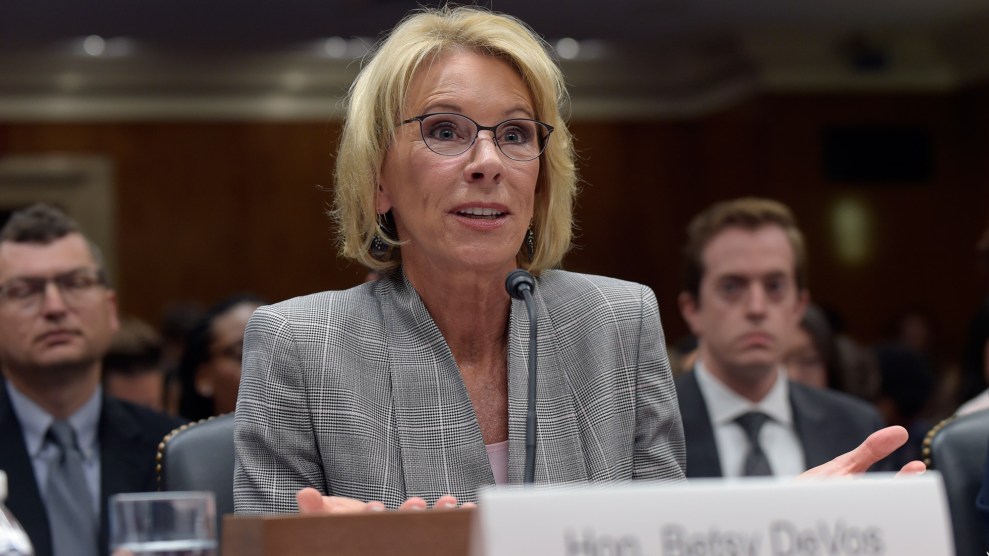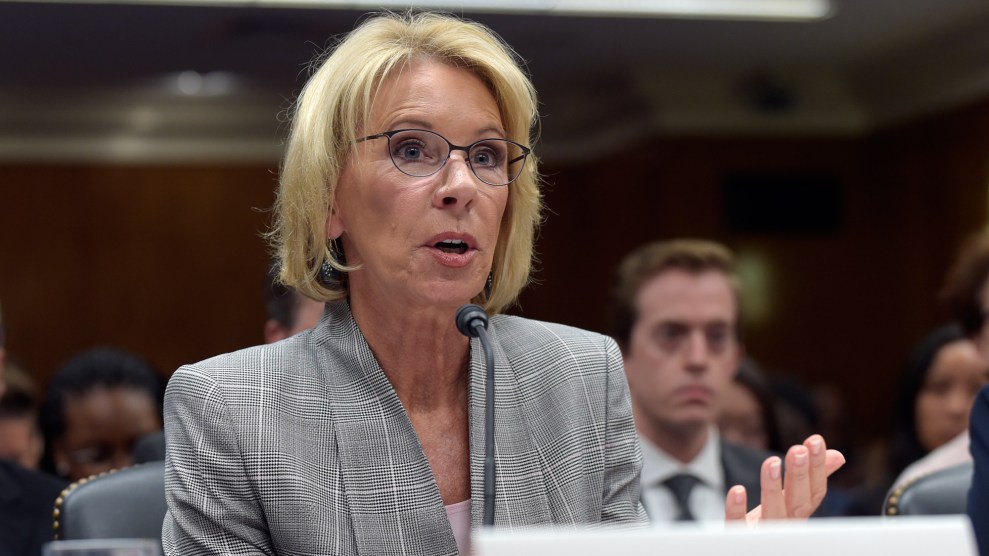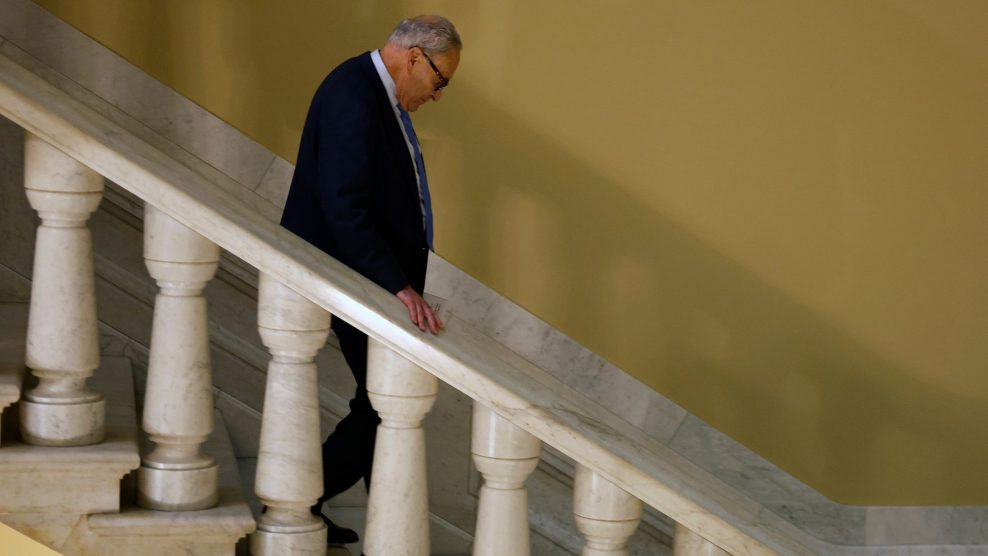
Susan Walsh/AP
On Monday, the Supreme Court ruled that churches have the same rights as other groups to seek public money for nonreligious purposes, deciding 7-2 that the state of Missouri had violated a Lutheran church’s constitutional rights by denying it grant money to repave a playground surface.
Among those quick to cheer the decision was Education Secretary Betsy DeVos, who issued a statement claiming the court sent a message that “religious discrimination in any form cannot be tolerated in a society that values the First Amendment.” She added: “We should all celebrate the fact that programs designed to help students will no longer be discriminated against by the government based solely on religious affiliation.”
DeVos has long advocated using vouchers to pay for tuition at private religious schools, and it was clear that she saw Monday’s ruling as an opening for dismantling so-called Blaine Amendments, provisions in 37 states that ban using public money toward religious institutions, including schools.
But Martin West, an associate professor at Harvard’s Graduate School of Education, said that the court’s narrow decision will not have an immediate impact on the legal status of school voucher programs. He pointed to a footnote in Chief Justice John Roberts’ decision that noted the court was focusing on “express discrimination based on religious identity with respect to playground resurfacing,” as opposed to the broader use of taxpayer-backed funds by religious groups. “The majority was very careful not to extend its logic to school voucher programs in a way that it could have,” he said. “That would have delivered a resounding victory for the school choice movement.”
West noted that Justices Neil Gorsuch and Clarence Thomas concurred with most of Roberts’ opinion but disagreed with the footnote—perhaps signaling an eagerness to take up a case that would allow the court to issue a broader ruling.
It’s unclear how Monday’s ruling could shape future legal challenges to states’ school choice programs. But the justices have already signaled to lower courts that they should reconsider previous rulings in light of the Missouri case.
On Tuesday, the justices tossed out lower-court rulings in New Mexico and Colorado regarding the use of public money for religious institutions and asked state supreme courts for reconsideration. New Mexico’s high court had struck down as unconstitutional a state program that gave textbooks to public and private schools. Meanwhile, the Colorado Supreme Court had found that a scholarship program run by Douglas County’s school district was unconstitutional, stating in its majority decision that a provision in the state’s constitution “makes one thing clear: A school district may not aid religious schools because it directed taxpayer money toward private schools.”


















